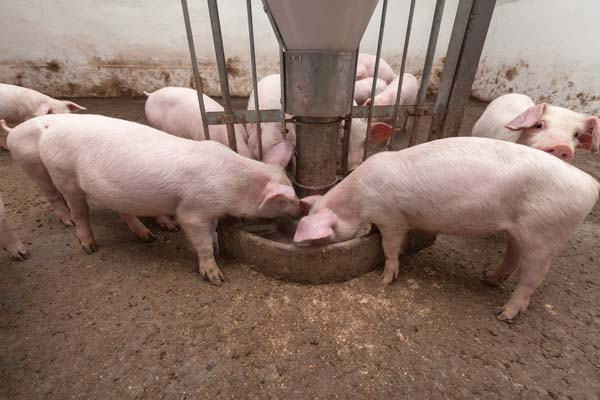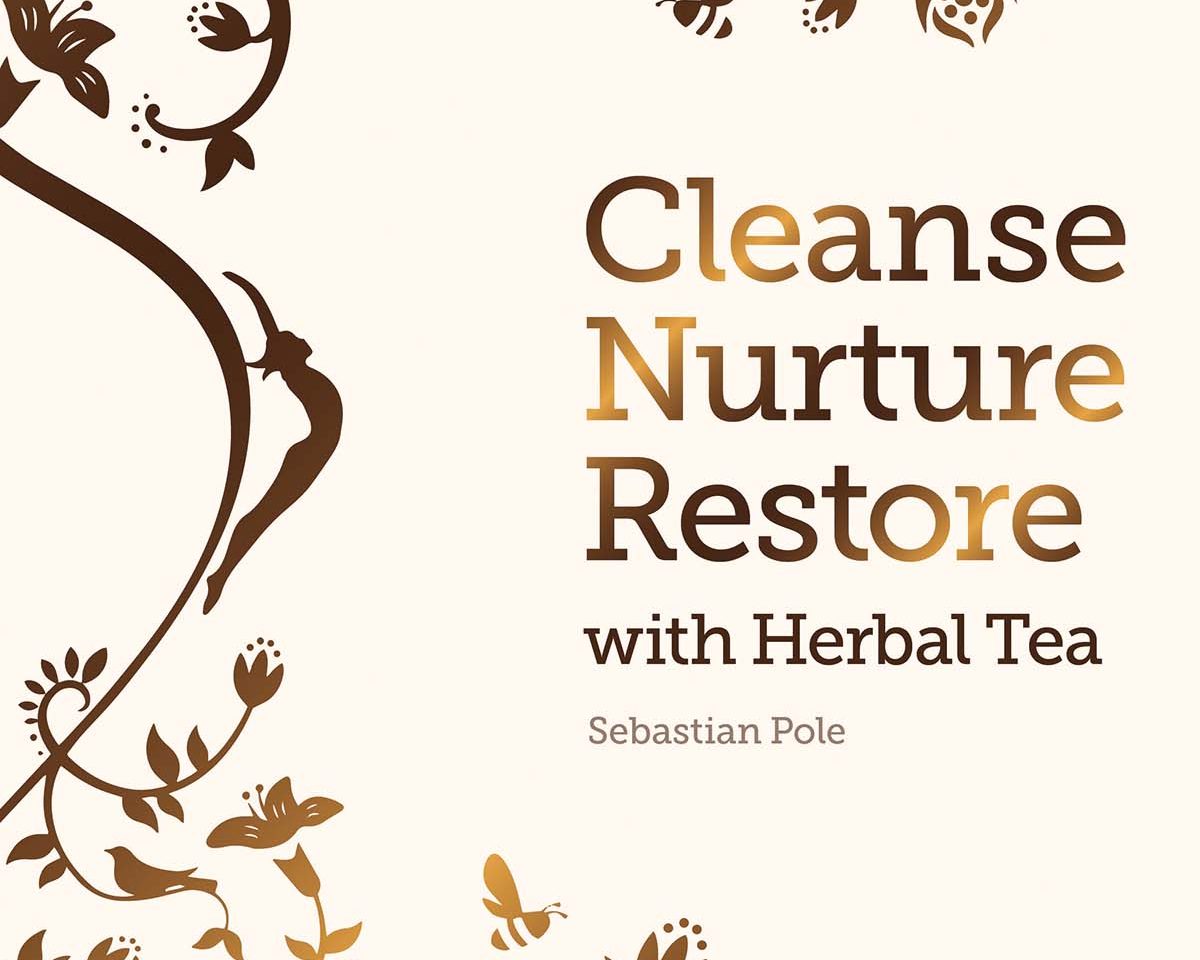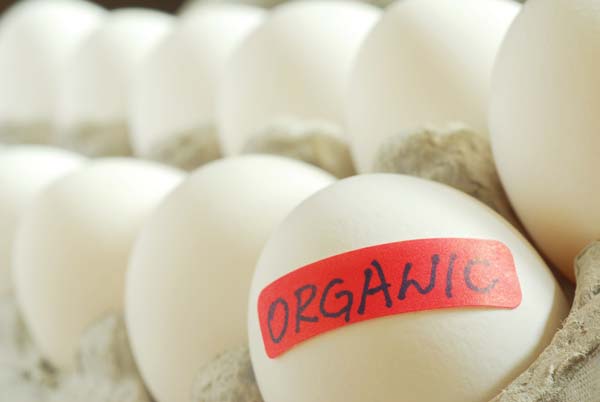Posted by admin on December 2, 2016 · Leave a Comment

The Soil Association has raised its concern at the continued overuse of farm antibiotics across Europe.
New data from the European Medicines Agency (EMA) has revealed that many European countries are failing to put an end to massive overuse of antibiotics in farming, with use of antibiotics in Europe remaining more than twice as high in animals as in humans.
The O’Neill Review on antimicrobial resistance, commissioned by the UK Government, recommended that high-income countries should aim for a short-term target of 50mg of antibiotic per kg of livestock, however, the EMA shows that the average European level of use is over three times higher at 152 mg/kg.
In the 25 European countries which provided comparable data, sales of farm antibiotics per unit of livestock went down by just two per cent in 2014 compared with 2013.
The EMA data revealed that more than 91 per cent of European farm antibiotics are used for mass medication in feed or drinking water. A large proportion of this is for routine disease prevention in intensively farmed pigs and poultry. In contrast, in Sweden, where there is no routine medication, 90 per cent of farm antibiotic use is for individual treatments. Antibiotic use in the British livestock in 2014 was at similar levels to 2013 and significantly below the EU average, at 62 mg/kg. However, the main reason for apparently quite low consumption is that, compared with other countries, the UK has a very high proportion of low-consuming sheep and relatively few high-consuming pigs. The Alliance estimates that antibiotic use in British pigs is actually at around 265 mg/kg.
Cóilín Nunan, of the Alliance to Save Our Antibiotics, said: “The shocking overuse of farm antibiotics shown by these data is a result of the continued failure by most countries to ban routine preventative mass medication in intensive farming. Spain now uses 100 times more antibiotics per unit of livestock than Norway, 80 times more than Iceland and 35 times more than Sweden. The main reason for the difference is that Spain, like most of Europe, allows routine mass medication, whereas the Nordic countries do not. The increased use of last-resort and critically important antibiotics is particularly alarming and confirms that reliance on voluntary and softly-softly approaches is not working.”
In January, discussions are to start between the European Commission, the European Parliament and the Council of Ministers; the European Parliament has proposed a ban on all routine antibiotic use, but this has not yet been accepted by the Council of Ministers or the Commission.
Nunan added: “The British Government must support the European Parliament’s proposed ban on routine mass medication in the upcoming ‘Trialogue’ negotiations. When Brexit happens, the Prime Minister says that EU rules and regulations will be converted into British law with the Great Repeal Bill, so these negotiations are going to be hugely important for the future of British farming.”
Posted by admin on December 2, 2016 · Leave a Comment

The co-founder of Pukka Herbs has written his latest book.
Cleanse, Nurture, Restore with Herbal Tea is released in January and is designed to teach readers how to harness the power of plants.
The author, Sebastian Pole, is a Master Herbsmith and co-founder of Pukka, and brings together 70 herbal tea recipes using dried and fresh herbs and nature’s finest ingredients for health, wellbeing and flavour.
The book also includes a glossary of ailments and elixirs that provide natural support for all the family.
Pole is a global spokesperson for Ayurvedic living, organic farming and herbal remedies. He is a trained practitioner in Ayurveda, Traditional Chinese Medicine and Western Herbalism, as well as a qualified yoga teacher and therapist. He is the author of A Pukka Life (2011) and Ayurvedic Medicine: The principles of traditional practice (2006).
Posted by admin on December 2, 2016 · Leave a Comment
The Soil Association is using the festive season to demonstrate to shoppers why they should make the switch to organic.
The organisation has launched the Organic Christmas Collective, showcasing everything needed for a delicious Christmas that won’t cost the earth, including all the best local producers and with a unique organic gift guide.
The Soil Association explains that just by swapping one or two key Christmas dinner items, such as turkey, sprouts, carrots and potatoes, to organic can make a surprisingly big impact.
It uses turkey as an example, explaining that 90 per cent of the 10m turkeys sold in the UK each year are reared intensively. Organic ensures turkeys have not been given unnecessary routine dosing of antibiotics and have had a good life with access to the outdoors.
The Organic Christmas Collective is filled with new and innovative products, and provides inspiration to help shoppers find local, ethical, organic produce for friends and family. Whether it’s sourcing a turkey or trimmings for Christmas dinner, finding a favourite tipple or gift ideas, the Collective makes it easy to find and support local shops, stockists and producers. Searchable by product or region, the directory features a handy online map, showing closest sources first.
The Soil Association has also produced 10 top tips for a sustainable Christmas and people can follow #OrganicChristmas for inspiration.
Posted by admin on December 2, 2016 · Leave a Comment

The year 2017 is set to be one of extremes in the food sector, according to market analysts.
In a new report, Mintel has announced the six key trends set to impact the global food and drink market, highlighting ingredient and food and drink product developments set to make an impact over the coming year.
It said that 2017 will be a year of extremes, from ancient products including grains, recipes, practices and traditions to the use of technology to create more and better tasting plant-enhanced foods. It also expects to see a rise in both ‘slow’ and ‘fast’ claims, as well as more products designed to help people calm down before bedtime, sleep better and restore the body while they rest. Opportunities will exist for more products to leverage the reputation of the tea category and use chamomile, lavender and other herbs in formulations as a way to achieve a sense calm before bedtime. There will also be a valid excuse for nighttime chocolate indulgence.
Mintel’s Global Food and Drink Analyst, Jenny Zegler, highlighted that consumers are seeking comfort from modernised updates of age-old formulations, flavours and formats, such as ‘ancient’ product claims, including ancient grains and also ancient recipes, practices and traditions. Potential also exists for innovations that use the familiar as a base for something that’s new, but recognisable, such as cold-brew coffee.
She also predicted that the preference for natural, simple and flexible diets will drive further expansion of vegetarian, vegan and other plant-focused formulations, while there will be greater focus on sustainability in relation to eliminating food waste.
The time investments required for products and meals will become as influential as nutrition or ingredient claims. Zegler explained that in 2017, the time spent on – or saved by – a food or drink product will become a clear selling point, inspiring more products to directly communicate how long they will take to receive, prepare or consume.
“This year’s trends are grounded in current consumer demands for healthy, convenient and trustworthy food and drink. Across the world, manufacturers and retailers have opportunities to provide more people with food and drink that is recognisable, saves time and contains servings of beneficial fruits, vegetables and other plants,” Zegler said. “In addition, Mintel has identified exciting new opportunities for functional food and drink designed for evening consumption, progressive solutions for food waste and affordable healthy food for low-income consumers. Opportunities abound for companies around the world to capitalise on these trends, helping them develop in new regions and more categories throughout the course of the next year and into the future.”
Posted by admin on December 2, 2016 · Leave a Comment

An organic certifier is reminding of the support offered to companies wishing to make the conversion.
Soil Association Certification is a leading organic certifier, with more than 70 per cent of the UK organic market. All licensees are supported throughout conversion and beyond with an exclusive business support package.
Sara Ogborne, Agricultural Business Development at Soil Association Certification, speaking at the recent Welsh Dairy show, commented: “It’s a great time to go organic, the market is in steady growth and there are opportunities for farmers if you get your offer right. We are offering extremely competitive prices for those entering conversion, along with a whole host of other benefits and expert business support throughout the whole process. If you’ve been thinking about how organic could benefit your farm, we’d love to hear from you.”
The Soil Association Certification business support package includes practical and efficient support from a personal Certification Officer, solutions to improve efficiency and keep costs down, such as combined inspections, access to practical knowledge from dedicated organic inspectors, certification team and farm innovation programmes, use of the UK’s most widely recognised organic symbol and supply chain support and free membership to supplier scheme, securing future markets.


 Organic & Natural Business magazine
Organic & Natural Business magazine



